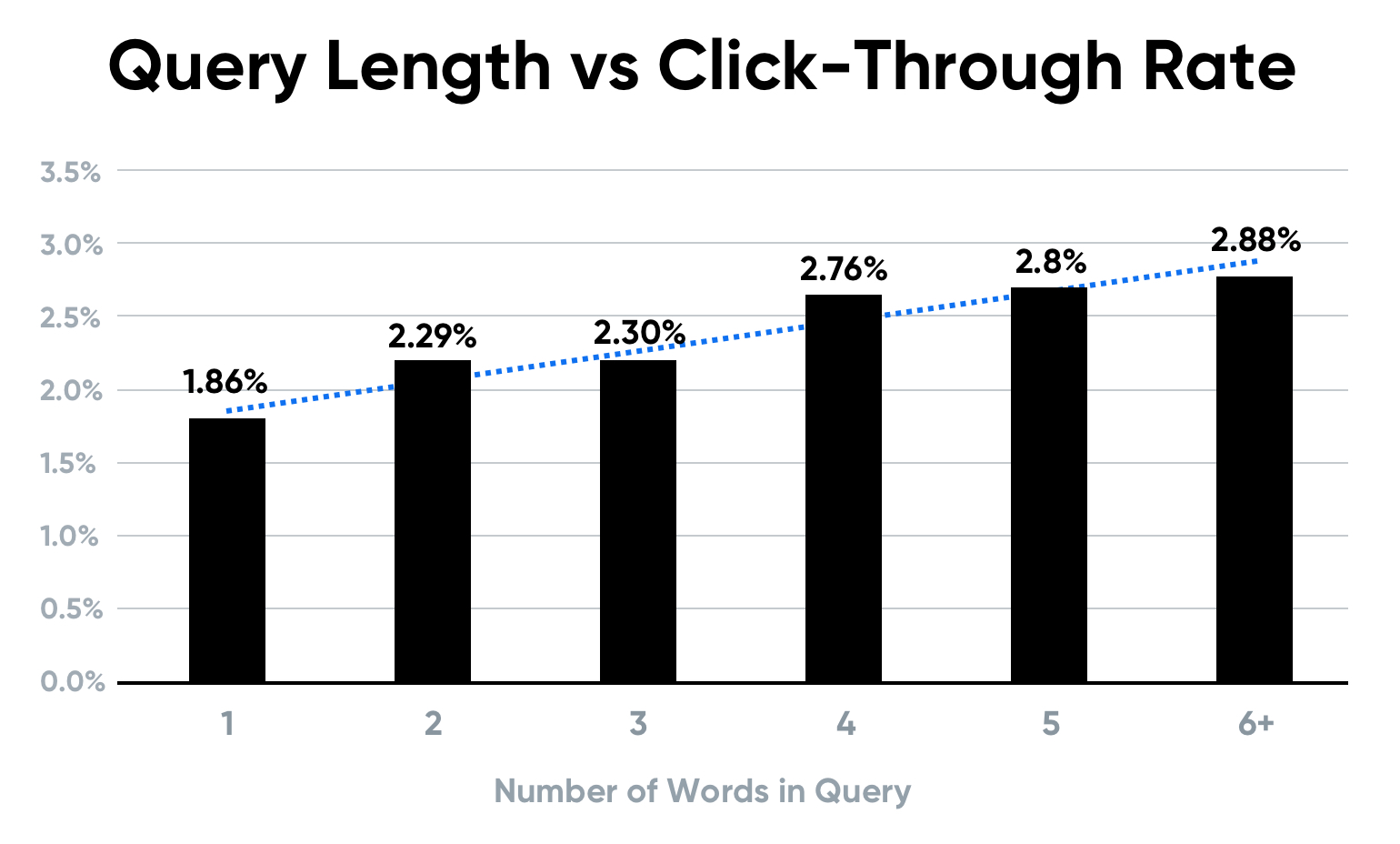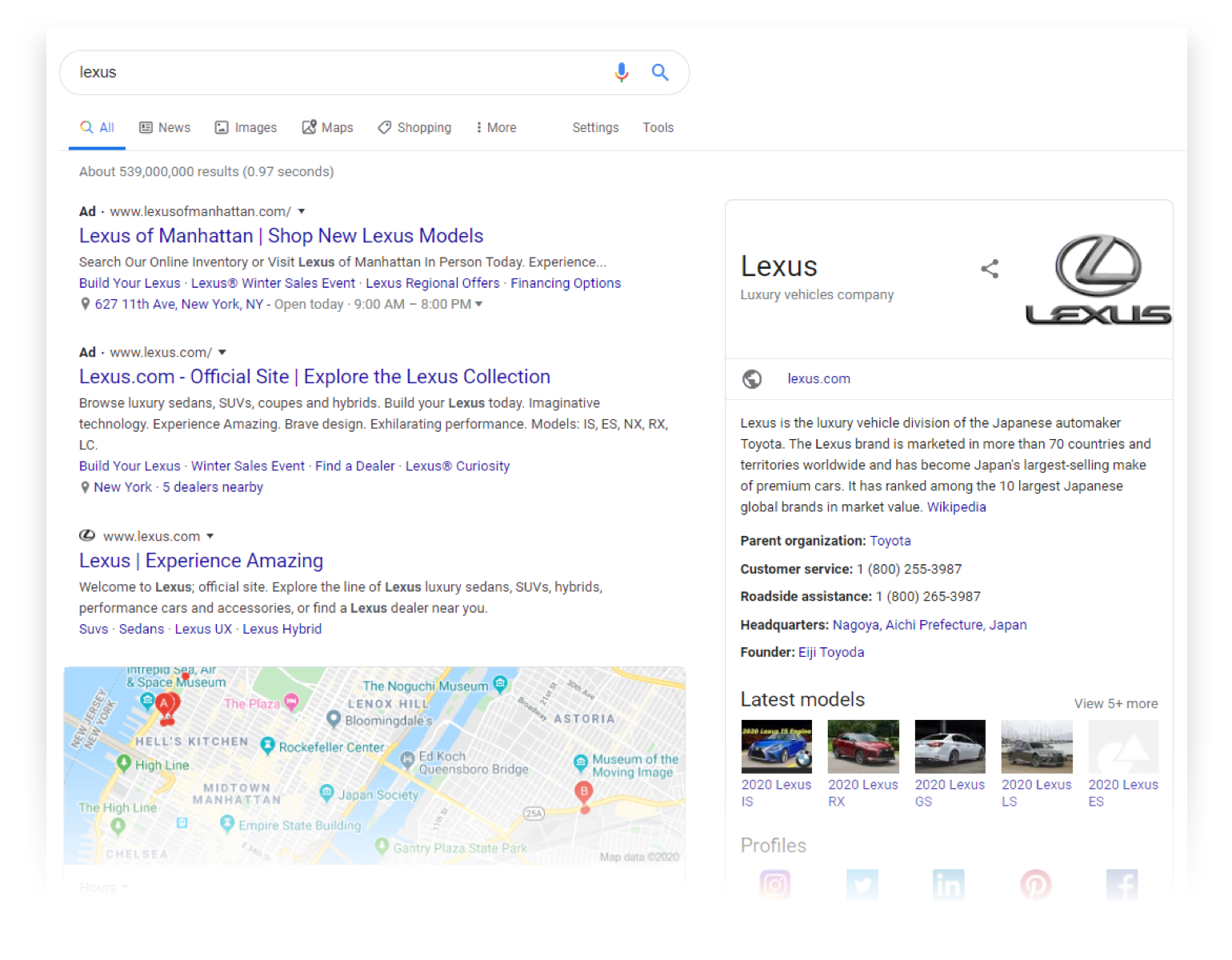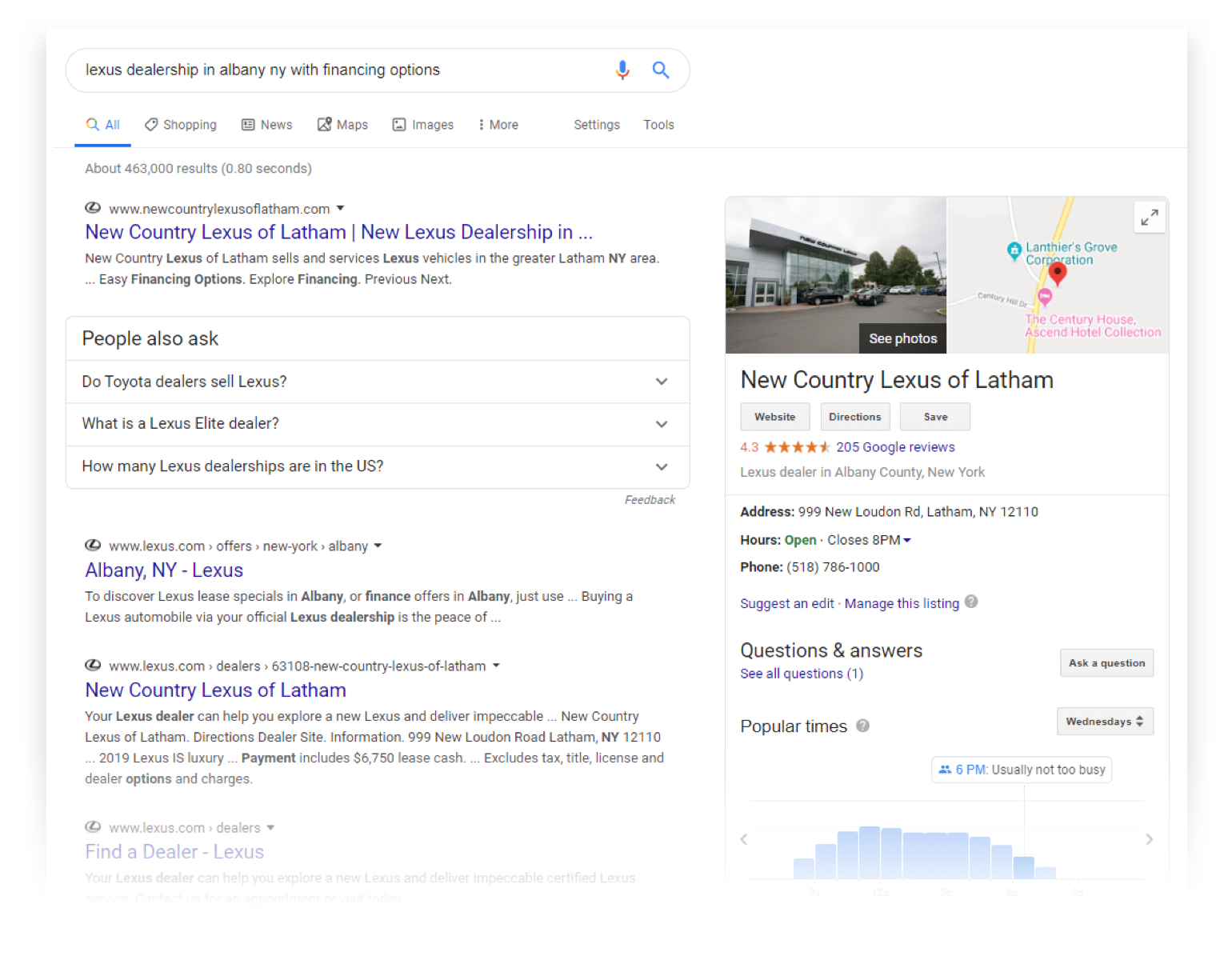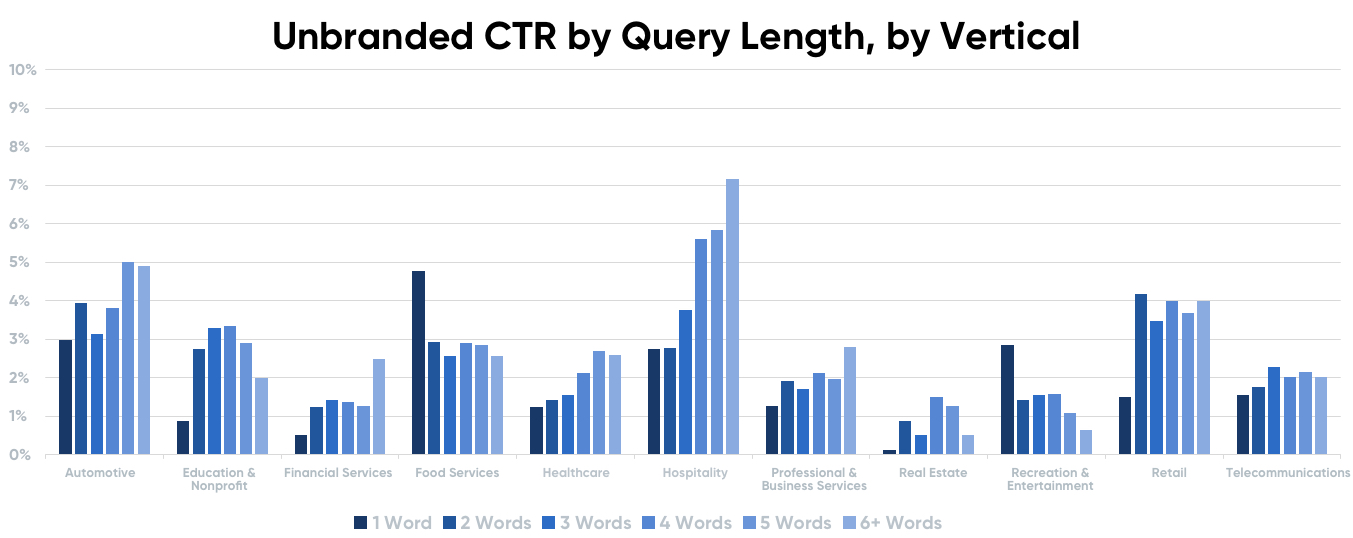Data Insights
How Marketers Can Leverage Search Queries to Unlock Customer Insights
New research confirms the relationship between search query length and intent. The longer the query, the likelier a customer is to click on your page.

Natural language processing (NLP) technology continues to improve at an unprecedented rate. 2019 saw especially swift progress, spurred on by the introduction and adoption of BERT — Google's revolutionary new model for natural language understanding. In late 2019, Google implemented BERT into its search algorithm, with the goal of better understanding long, complex search queries:
"With the latest advancements from our research team in the science of language understanding—made possible by machine learning—we're making a significant improvement to how we understand queries, representing the biggest leap forward in the past five years, and one of the biggest leaps forward in the history of Search."
User behavior is quickly adapting to these advances in NLP. People are increasingly using long, natural language queries in search. Instead of "Lexus," they'll search for "Lexus dealership in albany ny with financing options," trusting that today's newer, smarter algorithms will be able to understand their complex query and serve relevant results.
At the same time, GDPR and other regulatory pressures are limiting the amount of user data companies can collect via cookies. As a result, marketers must look to other sources of data to learn about their customers. Since search queries have become longer, more conversational, and therefore more informative, they are now a crucial data point for marketers.
Multi-word, natural language queries are especially important because they express high intent. "Lexus" is a vague and competitive keyword, as it is unclear what specifically the user is looking for. "Lexus dealership in albany ny with financing options," on the other hand, is highly specific and expresses a clear intent. This user is looking for a particular type of dealership in a particular city, and they're clearly closer to a purchase. The more words in the query, the greater the intent it expresses.
New research from Yext confirms the relationship between query length and intent. An analysis of all Google search queries for Yext Pages clients in 2019 shows a strong relationship between the number of words in a query and the click-through rate for Yext Pages.

The longer the query, the likelier a customer is to click on your page. Long (6+ word) queries are 55% more likely than short (1 word) queries to result in a click.
To understand this phenomenon, consider the two SERPs below.


The short, low-intent query yields a dense, competitive SERP, with three different advertisements, a local pack of three listings, and a knowledge card, all vying for the user's attention. The long, high-intent query, on the other hand, yields a direct result, enabled by advances in NLP. Short, vague keywords require businesses to compete intensely with ads and marginal SEO optimizations. Long, high-intent keywords allow brands to simply answer a question.
Interestingly, this trend does not affect all industries equally. Further research from Yext reveals that user behavior varies significantly from industry to industry. In some verticals, the trend is especially pronounced — long queries are far likelier to lead to a click than short ones.

In several key industries there is an especially pronounced, positive relationship between query length and engagement. In other words, the longer the query, the higher the click-through-rate. (It's worth noting, also, that the proliferation of zero-click searches understates engagement, especially for long queries.) Industries observing this pronounced trend include:
- Automotive
- Financial Services
- Healthcare
- Hospitality
- Professional and Business Services
In general, it appears that industries with more expensive products and longer purchase cycles will tend to favor longer, more complex queries. A sample of the long, high-CTR queries from these industries reveals why:
- Payday loans using ssi direct express card no bank account near me (21% CTR)
- Where to get headlight bulb replaced near me (50% CTR)
- List of eye doctors that accept medicaid near me (9% CTR)
- Who accepts spa and wellness gift cards near me (16% CTR)
- Where can i mail a package near me (42% CTR)
The nature of the products and services in these industries are more complex, and so they prompt users to ask more complex questions. Purchasing a new car, establishing a banking relationship, seeking out medical treatment — these are complicated, expensive, time-consuming transactions, and consumers will naturally have many questions along the way. They will need to know what insurance is accepted, what financing options a dealership offers, and how a bank's financial products work.
With recent advances in NLP, consumers now fully expect to find the answers to these questions in search, and their business will go to the companies that are ready to provide the answers.
What does this mean for your business? We believe there are three key takeaways:
- Let user intent drive content strategy. Users are now explicitly telling businesses what they want to see and what they need to know via their search behavior. Their queries should drive your content strategy. For example, if users are searching "optometrist that accepts aetna," your pages need to tell users — and search engines — what insurance your business accepts.
- Build query analytics. However, using queries to identify opportunities for new content is no easy task. It requires sifting through massive datasets of search queries and performing sophisticated analysis, such as topic modeling and clustering. But it is well worth the trouble, and businesses should invest time and resources into query analytics, using platforms such as Yext and SEMRush as the backbone of their research. This analysis should take into consideration query length and complexity, recurring search terms, and click-through rates. In their recent publication, CXL provides a blueprint for this analysis.
- Collect query data yourself. Businesses need not rely on Google alone for query data. In fact, building in-house query analytics for your own site search can yield much richer data than Google provides. Site search analytics can relate search queries to sessions, painting a much more detailed picture of user behavior after the initial search.
As NLP advances and GDPR closes the door on user data collection, the search query will increasingly become the most important datapoint businesses have about their users. This is especially true for industries in which products are expensive and purchase cycles are slow. Now is the time to invest in research and build new strategies around search queries.
